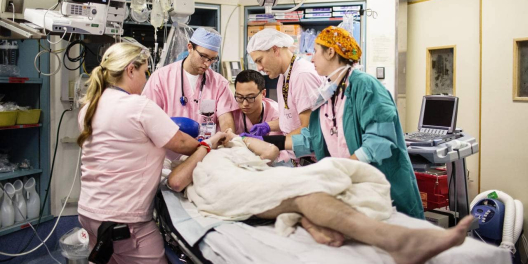Nurses will start voting on April 20 on a new contract that will include increased pay, mandatory nurse-to-patient ratios and incentives to retain and attract new nurses.
The BC Nurses’ Union (BCNU) represents 48,000 professional nurses and allied healthcare workers who provide care in hospitals, long-term care facilities and the community throughout BC. They’ve been without a contract since last March.
The BCNU negotiating team says the new contract is a good deal and wants their members to vote in favour.
But not all members agree.
Emergency room nurse Christina Gower fears a proposed $2.15 per hour wage premium for regular employees will create an unfair pay system for casuals doing the same work.
“I’m afraid that it’s actually going to deter people from coming into nursing or staying in nursing,” Gower told CTVNews.
She also doubts the mandatory nurse-to-patient ratio mandate will be effective because hospitals don’t have the staff right now. Nurses at most hospitals are maxed.
Anna Grewal, BCNU president, said there were 5,200 unfilled nursing positions in BC last spring. By 2030, she estimates the province will need 26,000 new nurses. On the job search site http://ca.indeed.com there are 52 listings for nursing positions in the Port Hardy area alone.
In a poll last year, over 80 percent of BCNU members said nurse-patient ratios were a top priority for improving working and practice conditions.
That’s why the BC government is pinning a lot on this plan, the first of its kind in Canada.
In a recent statement, Health Minister Adrian Dix said that setting a nurse-to-patient ratio is “the leading international practice” for retaining nurses, managing workloads and delivering quality health care.
To deal with staffing shortages, the government plans to invest $750 million and work with the BCNU on a “national and international” recruitment campaign over the next three years.
The tentative deal also includes a fund of $100 million to allow experienced nurses and healthcare workers to advance their careers within public health.
Internationally trained nurses have long complained about the mountain of red tape they must climb to practice in BC.
In January, Premier David Eby announced that the province would pay fees for international nurses and help finance former nurses who want to return to the professions. The Premier also said the government would invest $1.3 million to speed up internationally trained nurses’ application process.
Let’s hope the plan works.










